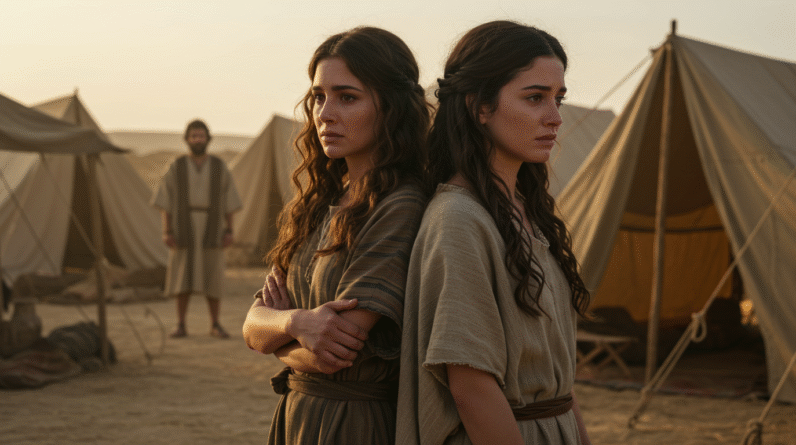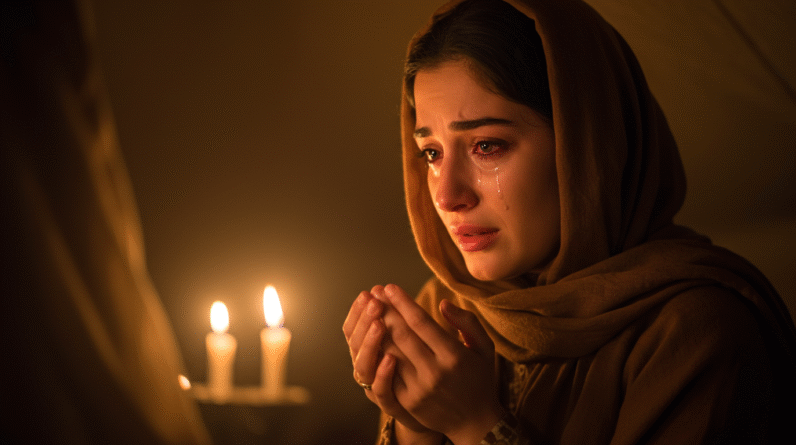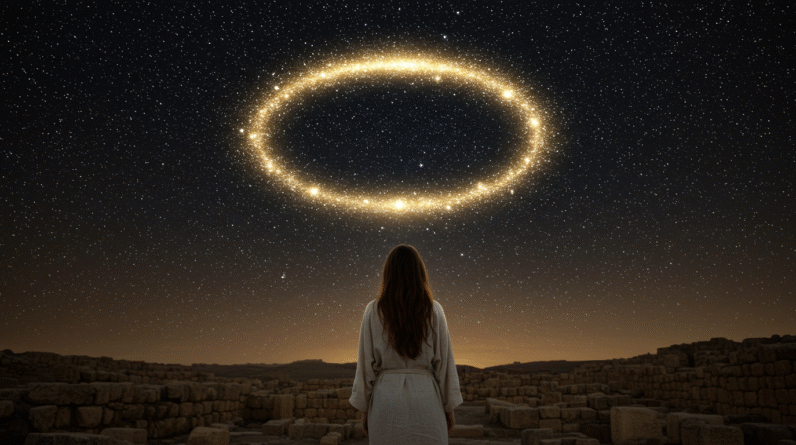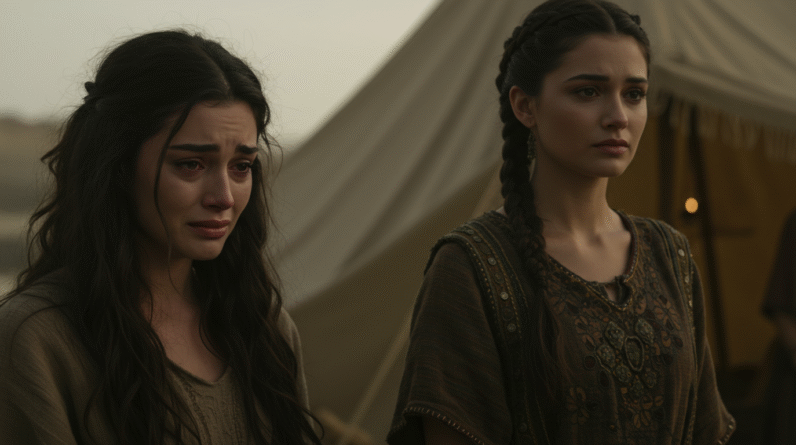Explore Leah, Jacob’s first wife, in this tale of love, struggle, and divine destiny. Discover how her journey shaped six tribes and a spiritual legacy.
Leah – First Wife of Jacob, Mother of Six Tribes (Genesis 29:16-35)
Life stories often echo themes of love, jealousy, and divine purpose, recurring motifs that are all too familiar in historical and contemporary contexts. Leah, the first wife of Jacob, presents a compelling narrative, woven with aspirations and disappointments, yet ultimately leading to significance and legacy. Dive deep into Leah’s life as we explore her profound journey through the pages of Genesis.
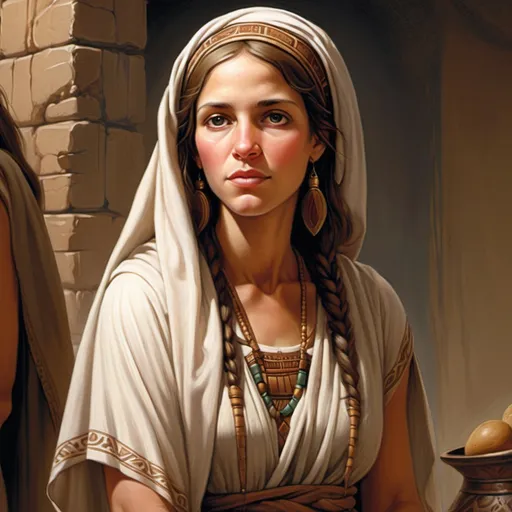
Introduction
Imagine living in the shadows of your younger sibling, constantly feeling overshadowed and vying for affection and validation. Leah’s story, as captured in Genesis 29:16-35, is a classic tale of struggle and transformation. Identified as the less-favored wife of Jacob, Leah’s life unfolds as an emblem of divine purpose transcending personal adversity. Leah’s story not only played a crucial role in the emergence of the twelve tribes of Israel but also illustrates how each life has a purpose beyond what is immediately visible.
Their Story in the Bible
Leah’s narrative begins with her introduction as the elder daughter of Laban, the unscrupulous uncle of Jacob. Unlike her beautiful sister Rachel, Leah is described as having “weak eyes,” an allegorical reference to her perceived lack of appeal in comparison to her sister (Genesis 29:17). Despite Jacob’s love for Rachel, a deceitful turn of events at the hands of Laban results in Leah being married to Jacob instead (Genesis 29:23-25).
Over time, Leah bore Jacob six sons, each shaping the tribes of Israel—Reuben, Simeon, Levi, Judah, Issachar, and Zebulun, alongside her daughter, Dinah (Genesis 29:31-35). Despite her blessing of children, Leah’s life was not devoid of emotional turmoil. The underlying desire for Jacob’s love and validation loomed large, influencing her interactions and decisions within the family dynamics (Genesis 30:14-20).
The narrative of Leah is not merely confined to her role as Jacob’s wife; it expands into the larger canvas of biblical history. Her son Judah became an ancestor to the line of David and, ultimately, Jesus, highlighting Leah’s significant place in the ancestral line of the Messiah. Through Leah’s lineage, a profound spiritual legacy unfolded, one that far exceeded her immediate reality.
Lessons from Her Life
Leah’s life is a rich tapestry of lessons, speaking volumes on issues of acceptance, purpose, and faith. Firstly, Leah’s journey teaches us the intrinsic worth of every individual, even when overshadowed by societal norms that prioritize external beauty over inner virtue. In a world where superficial standards often dictate value, Leah’s story serves as a timeless reminder that our worth is defined by much more than surface attributes.
Secondly, despite not receiving her husband’s love, Leah’s steadfast nature and resilience are admirable. Her ability to rise above disappointment and find solace in God is evident through the names she chooses for her children, each expressing hope and faith (Genesis 29:32-35). Her life encourages us to find contentment and purpose beyond the confines of unmet expectations.
Lastly, Leah’s narrative illuminates how divine plans often unfold in unexpected ways. While her immediate circumstances seemed unfavorable, her enduring legacy through her descendants reveals a divinely woven tapestry of purpose and destiny. Leah’s life challenges us to trust in divine wisdom, encouraging faith in the unseen outcomes woven by a higher power.
Connection to Today’s World
In today’s world of relentless comparison and validation-seeking, Leah’s story resonates deeply. The pressure to attain acceptance, often measured by external attributes or societal achievements, mirrors the struggles Leah faced centuries ago. Her life urges us to find our identity and worth beyond the fleeting standards set by the world around us.
In the sphere of family dynamics, Leah’s story speaks to those grappling with feelings of inadequacy or neglect. It prompts reflection on familial love and acceptance and highlights the importance of recognizing and valuing each individual’s unique contributions. Furthermore, Leah’s legacy encourages individuals and societies alike to consider the long-term impact of their actions and virtues, promoting a focus on spiritual and moral legacies rather than material or superficial gains.
Key Bible Verse
A particularly poignant verse encapsulating Leah’s journey is found in Genesis 29:35: “She conceived again, and when she gave birth to a son she said, ‘This time I will praise the Lord.’ So she named him Judah. Then she stopped having children.” This verse signifies Leah’s turning point—a shift from seeking her husband’s approval to finding contentment and purpose in her relationship with God. Naming her son Judah, which means “praise,” highlights her ultimate realization and acceptance of divine grace in her life, offering a significant lesson on the power of gratitude and faith.
Thought-Provoking Question
Considering Leah’s transformative journey, one may ponder: In what ways can we shift our focus from seeking human validation to recognizing and embracing our divine purpose and worth as Leah did?
By engaging with Leah’s story, we explore timeless themes of love, self-worth, and legacy, offering guidance for life’s enduring challenges. As you reflect on her journey, consider how her tale might resonate with your life or the lives of those around you.



